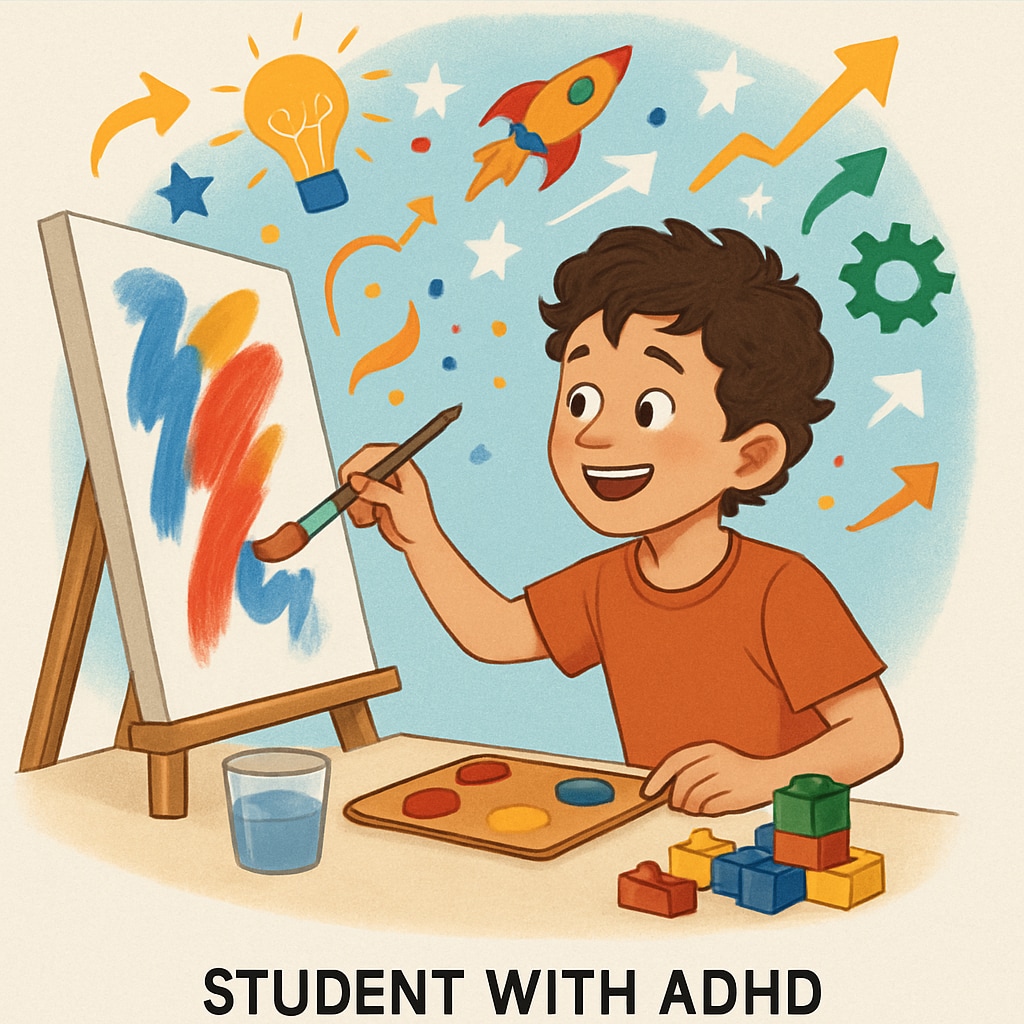The selection process for gifted education programs often relies heavily on standardized tests, which can inadvertently exclude brilliant minds, particularly those with ADHD (Attention Deficit Hyperactivity Disorder). These traditional assessment methods favor students who excel in a narrow range of academic skills, leaving out those whose talents may manifest in unconventional ways. As a result, gifted students with ADHD are frequently overlooked, raising questions about whether our current systems are truly identifying all exceptional learners.
The Limitations of Standardized Testing in Identifying Giftedness
Standardized testing has long been the cornerstone of identifying candidates for gifted education programs. These tests are designed to measure certain cognitive abilities, such as verbal reasoning, logical thinking, and problem-solving. However, they often fail to capture the full spectrum of intelligence, creativity, and potential. For students with ADHD, who may struggle with focus or test-taking due to their neurodivergent traits, the process can be especially challenging.
Research suggests that ADHD does not diminish intellectual capacity; in fact, many ADHD students demonstrate exceptional creativity and problem-solving skills. However, their difficulty in adhering to the rigid structures of standardized tests often masks their abilities. A 2018 study published in the National Center for Biotechnology Information highlights how ADHD students are disproportionately underrepresented in gifted programs due to this systemic bias.

How ADHD Traits Can Be Misunderstood as Weaknesses
ADHD traits such as impulsivity, hyperfocus, and difficulty following traditional instructions are often perceived as behavioral challenges rather than indicators of giftedness. Yet, these same traits can contribute to extraordinary achievements when properly channeled. For example:
- Impulsivity: Often linked to “thinking outside the box,” impulsivity can allow ADHD students to come up with innovative ideas that others might not consider.
- Hyperfocus: While ADHD is often associated with distraction, many individuals exhibit intense focus on tasks they find engaging, leading to exceptional mastery in areas of interest.
- Energy levels: High energy can drive ADHD students to excel in dynamic, hands-on environments where traditional learners may falter.
Despite these strengths, educators and administrators often lack training in recognizing how ADHD traits can overlap with giftedness. This misunderstanding perpetuates the exclusion of these students from programs designed to nurture exceptional talent.
Creating a More Inclusive Gifted Education Framework
To address this issue, the education system must adopt more inclusive methods for identifying gifted students. Here are several actionable steps that schools and policymakers can take:
- Expand assessment criteria: Incorporate measures that evaluate creativity, emotional intelligence, and problem-solving skills alongside traditional IQ tests.
- Provide teacher training: Educators should receive training to recognize diverse indicators of giftedness, particularly in students with ADHD or other learning differences.
- Use multiple data points: Consider input from parents, teachers, and psychologists to create a holistic picture of a student’s abilities.
- Offer trial periods: Allow students to participate in gifted programs on a provisional basis to demonstrate their capabilities outside of testing environments.
By implementing these changes, schools can ensure that gifted education programs are accessible to all students, including those with ADHD. This not only benefits the individual but also enriches the program by bringing in diverse perspectives and talents.

Conclusion: A Call for Equity in Gifted Education
The exclusion of ADHD students from gifted education programs is not just a missed opportunity for these individuals but a loss for society as a whole. By relying solely on standardized tests, we risk overlooking the unique contributions of neurodivergent learners. As awareness grows, it is crucial to redesign gifted education frameworks to celebrate and nurture all forms of intelligence. Only then can we create a truly equitable system that allows every student to reach their full potential.
As educators, policymakers, and parents, it is our responsibility to advocate for change. By broadening our understanding of what it means to be “gifted,” we can ensure that no genius is left behind.


